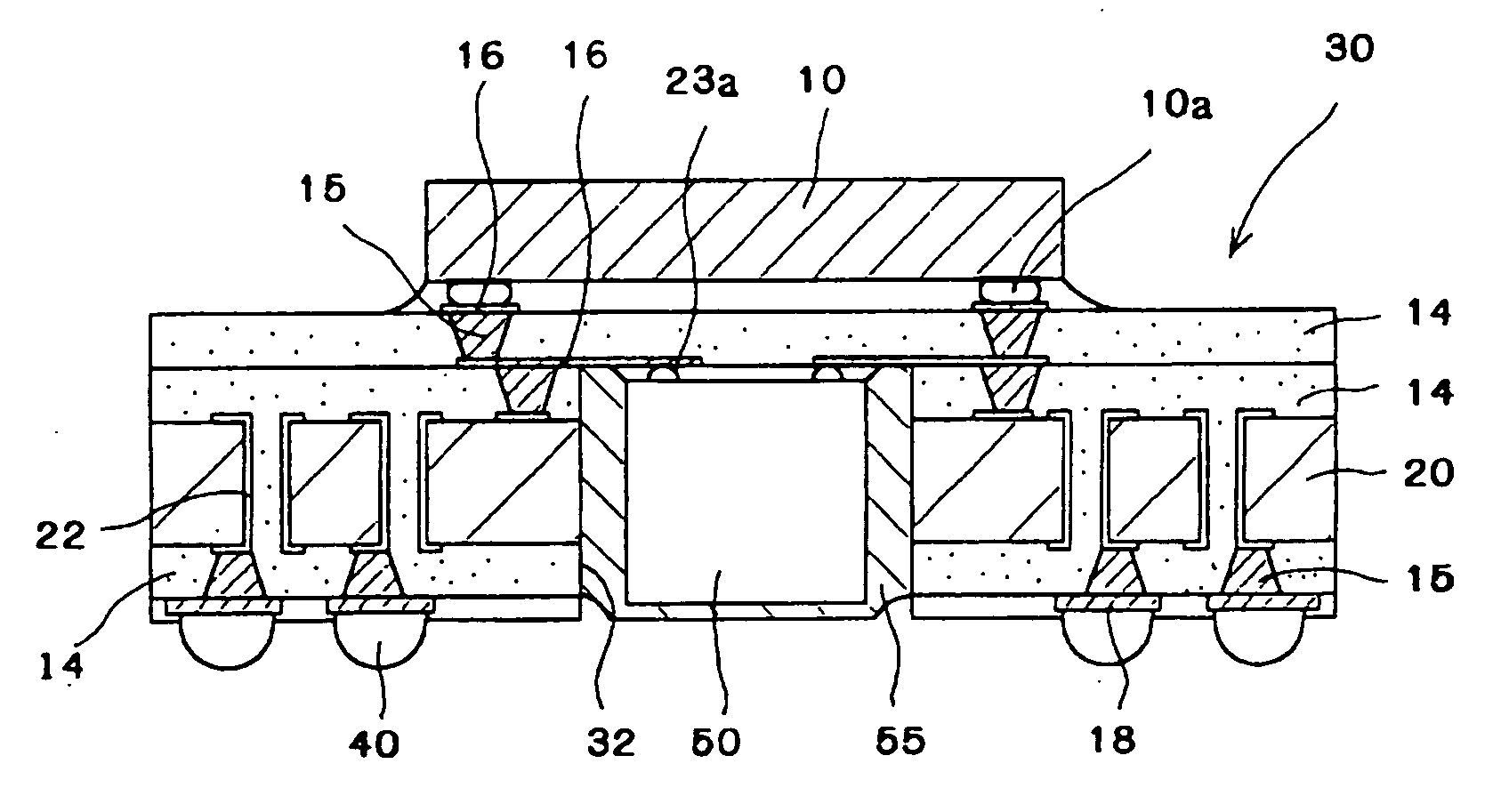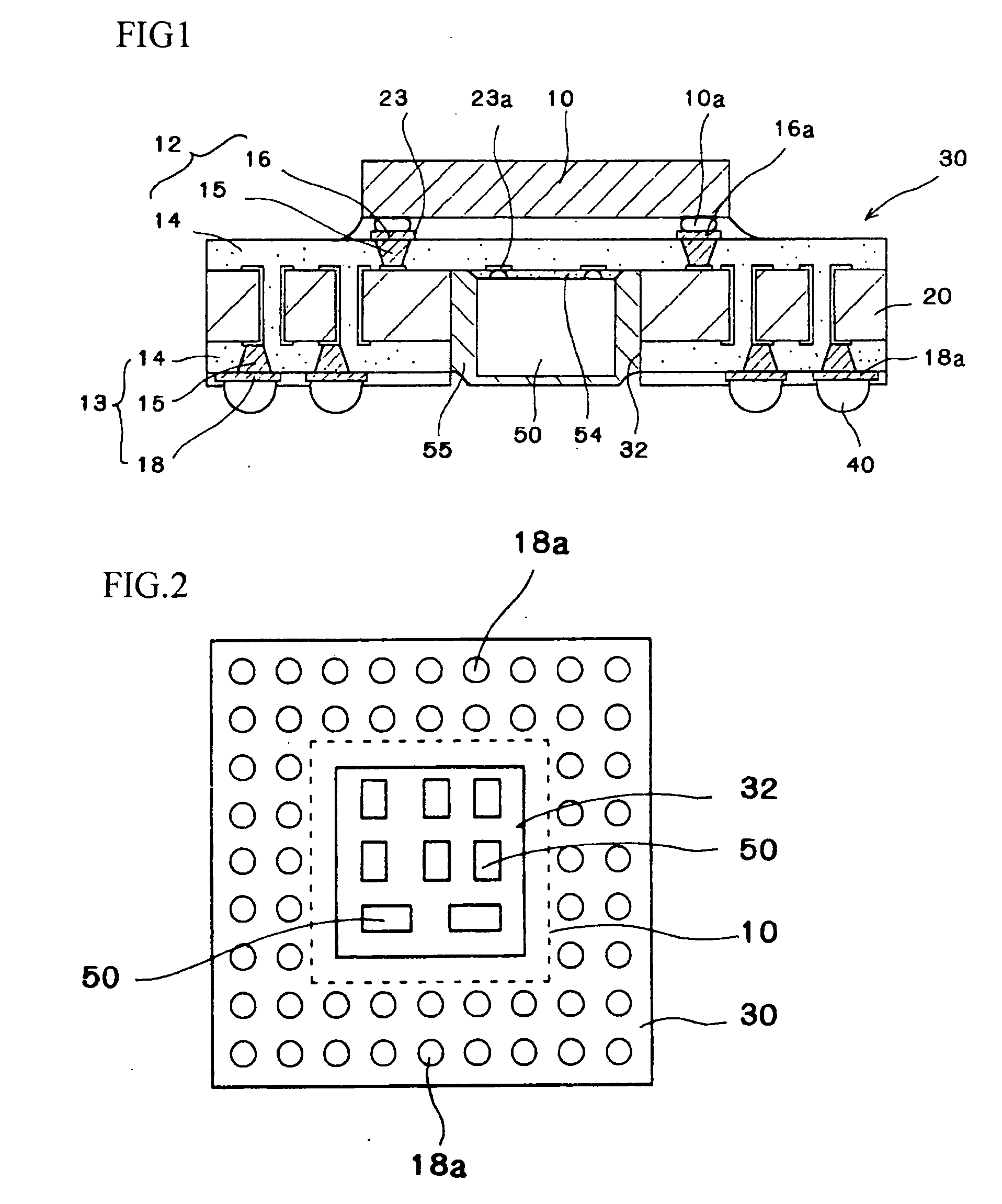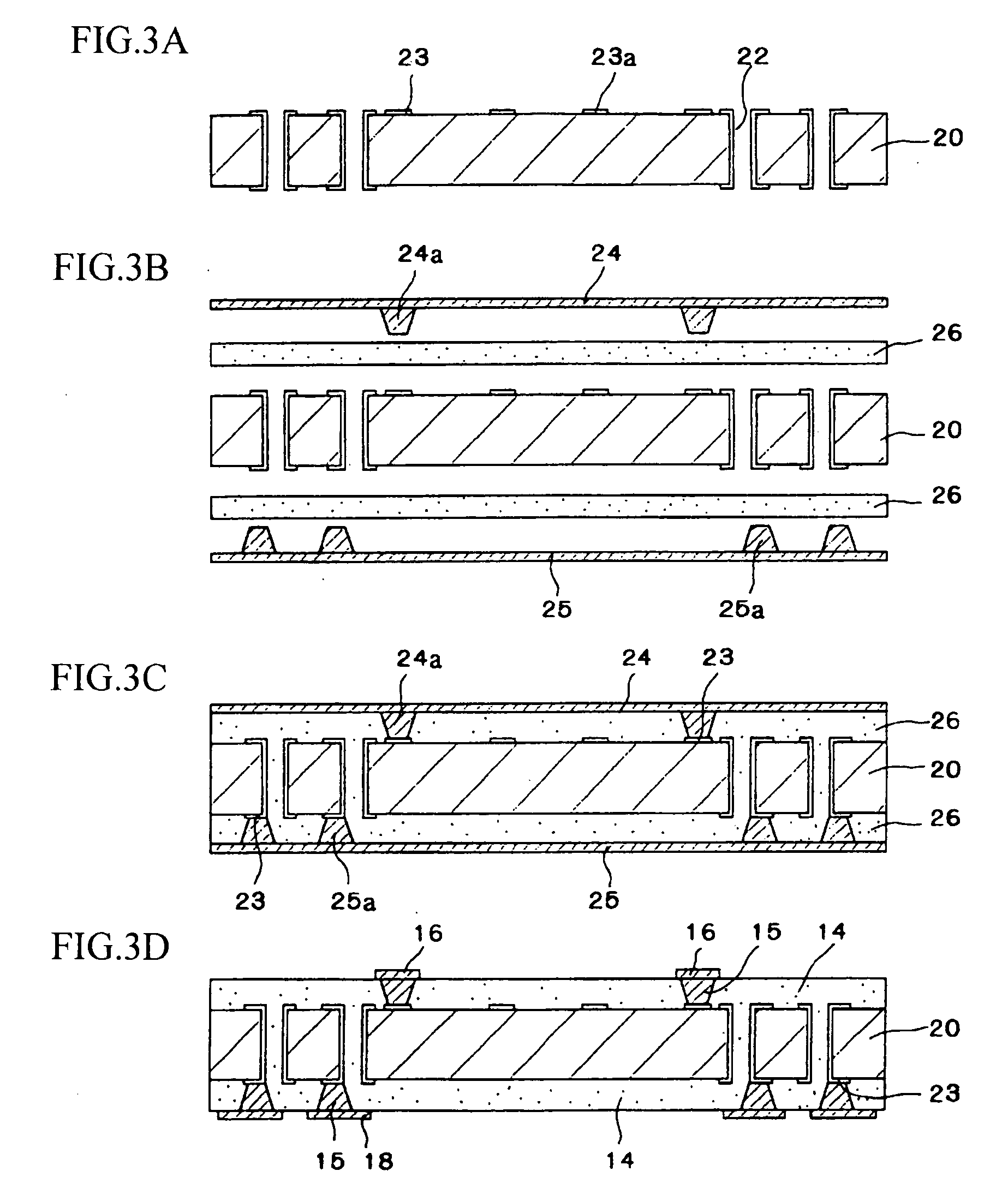Substrate for semiconductor device and semiconductor device
a technology for semiconductor devices and substrates, which is applied in the direction of printed circuit components, printed circuit non-printed electric components association, printed circuit manufacturing, etc., can solve the problems of difficult flattening of the top part of the implanted capacitor, the capacitor cannot meet the speeding up ics, and the substrate cannot be suitable for mounting capacitors having enough capacity on the substrate, etc., to achieve superior electric characteristics to high-speed signals, reduce circuit inductance, and effectively short circuit lengths
- Summary
- Abstract
- Description
- Claims
- Application Information
AI Technical Summary
Benefits of technology
Problems solved by technology
Method used
Image
Examples
Embodiment Construction
[0024] Preferred embodiments of the present invention will now be described in detail with reference to the accompanying drawings. FIG. 1 is a sectional view of a semiconductor device, in which a semiconductor element 10 is mounted on a substrate 30 of the present invention by flip-chip connection.
[0025] Circuit components 50, e.g., decoupling capacitor, fabricated separately from the substrate 30 are mounted on the substrate, a surface opposite to a semiconductor element mounting surface is counterbored so as to form a component mounting hole 32, and the circuit components 50 are accommodated in the component mounting hole 32.
[0026] The component mounting hole 32 is formed by counterboring the substrate, it is a concave capable of accommodating one or a plurality of the circuit components 50, connection terminals 23a, which are electrically connected to the semiconductor element 10, are exposed in an inner bottom face of the component mounting hole, and the connection terminals 2...
PUM
 Login to View More
Login to View More Abstract
Description
Claims
Application Information
 Login to View More
Login to View More - R&D
- Intellectual Property
- Life Sciences
- Materials
- Tech Scout
- Unparalleled Data Quality
- Higher Quality Content
- 60% Fewer Hallucinations
Browse by: Latest US Patents, China's latest patents, Technical Efficacy Thesaurus, Application Domain, Technology Topic, Popular Technical Reports.
© 2025 PatSnap. All rights reserved.Legal|Privacy policy|Modern Slavery Act Transparency Statement|Sitemap|About US| Contact US: help@patsnap.com



